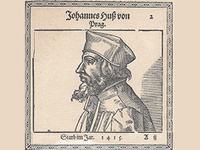 This service of Holy Communion in early July marks the occasion of the martyrdom of Jan Hus, whose teaching and preaching in the early 15th century gave rise to what is today the Moravian Church.
This service of Holy Communion in early July marks the occasion of the martyrdom of Jan Hus, whose teaching and preaching in the early 15th century gave rise to what is today the Moravian Church.
On Saturday, July 6, 1415, the town of Constance, situated on both banks of the river Rhine, witnessed the last act of a tragedy. Hus, the Czech priest and preacher, marked as a heretic by Rome, passed the cemetery where his books were being burned and, in the next moment, he suffered the same fate.
In 1400, Hus had been ordained to the priesthood, and the following year was elected Dean of the Faculty of Arts at Prague University. Hus was especially impressed with the views of Oxford theologian John Wyclif, stressing the importance of preaching and the necessity of striving for a moral revival of the Church.
In 1402 Hus was appointed a preacher at Bethlehem Chapel. From the pulpit of Bethlehem Chapel as well as at the University, Hus constantly promoted reform within the Church. The number of his friends increased, as did the number of his adversaries.
Finally, the Archbishop, Zbynek Zajíc of Hasenburk, forbade Hus to continue preaching. Hus did not obey. Hus’s message of fidelity to the truth, passed on from generation to generation, forms the most inner core of his legacy to the Church and to his nation.
This message still needs to be heard by all who care for the truth: “Seek the truth, listen to the truth, learn the truth, love the truth, speak the truth, abide by the truth, defend the truth unto death.” (Jaroslav Necas and Vaclav Starý, Master John Hus and the Town of Husinec)
In 1457 followers of Hus established, in what is now the Czech Republic, the Unitas Fratrum, Latin for “Unity of Brethren,” which ultimately became known as the Moravian Church.
This year marks the 608th anniversary of Hus’s martyrdom.
